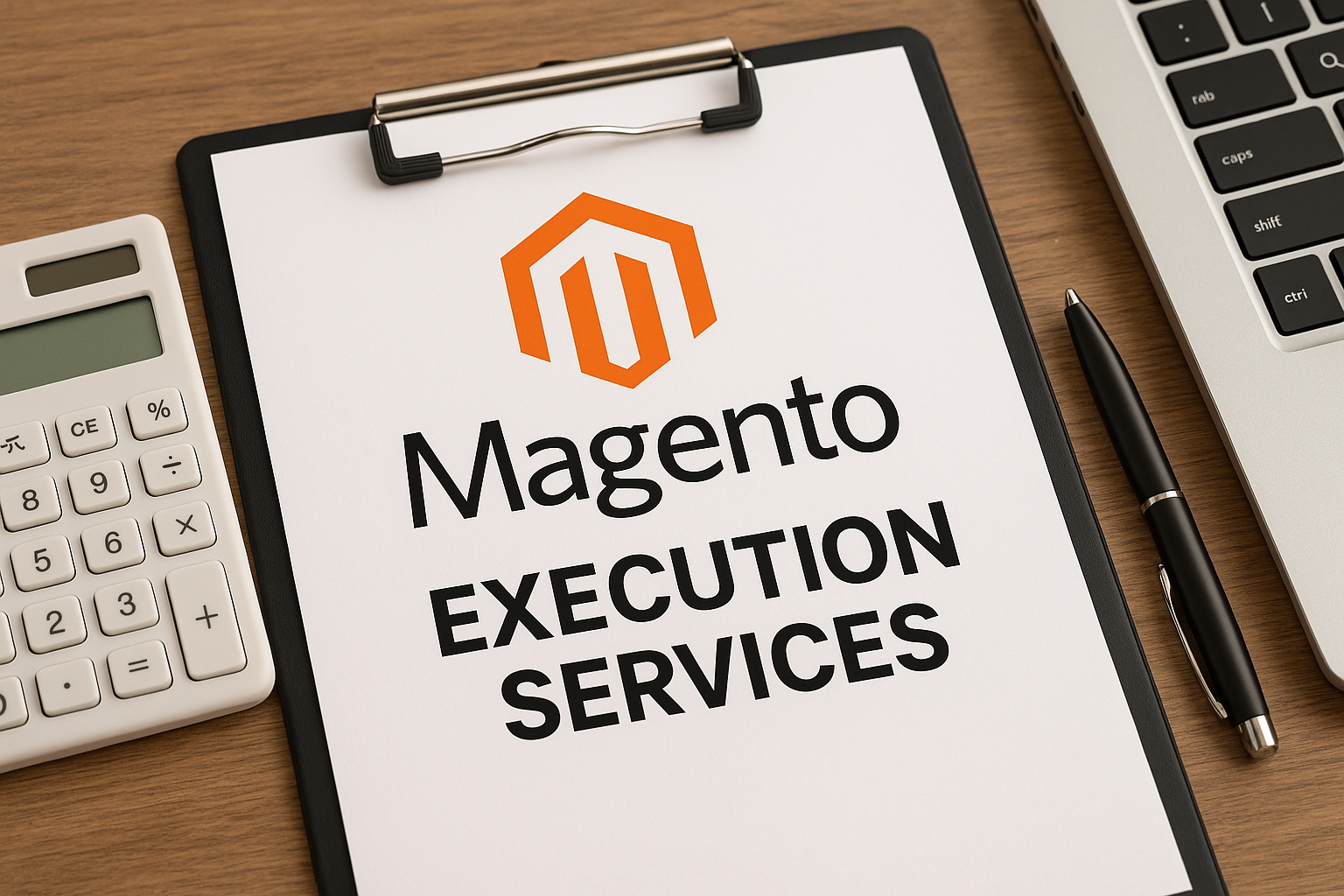Unlock streamlined order processing and elevate your e-commerce operations by harnessing Magento fulfillment services. This integration not only boosts accuracy and speed but also adapts effortlessly as your business scales. Understanding how Magento transforms fulfillment workflows can reveal new efficiencies, cut costs, and improve customer satisfaction offering a practical way to stay competitive in today’s fast-paced market.
Leveraging Magento Fulfillment Services to Optimize Business Efficiency
Magento fulfillment services serve as a vital tool for enhancing operational efficiency within e-commerce businesses. These services streamline the entire order processing pipeline, from inventory management and picking to packaging and shipping, reducing manual errors and ensuring orders are dispatched promptly. By automating key tasks, Magento fulfillment enables companies to manage high order volumes without compromising accuracy or speed.
Have you seen this : Mastering API Endpoint Security: Implementing OAuth 2.0 in Your Flask Application
One of the significant benefits of Magento fulfillment services is their ability to improve order processing accuracy. These services employ advanced tracking and real-time inventory updates, minimizing stockouts and overselling. This accuracy leads to increased customer satisfaction as shipments arrive on time and in full, which is essential in today’s competitive e-commerce landscape.
Furthermore, businesses can enhance overall operational workflows by integrating Magento fulfillment services with their existing systems. This integration allows seamless communication between sales channels, warehouses, and shipping carriers. Thanks to this holistic approach to e-commerce optimization, companies can allocate resources more effectively, reduce turnaround times, and scale their operations smoothly as demand fluctuates.
This might interest you : Top 5 strategies for effective google workspace data backup
For businesses seeking comprehensive solutions to refine their supply chain and fulfillment strategies, exploring Magento Fulfilment offers a practical path forward. Its customizable features align with diverse business needs, making Magento fulfillment services a cornerstone for sustained operational growth and customer satisfaction.
Key Advantages of Magento Fulfillment Integration
Fulfillment integration benefits are vital for businesses leveraging Magento e-commerce platforms. One significant advantage is the marked increase in accuracy and reduction of errors in order management. This integration automates data flow between the online store and the warehouse, minimizing manual input mistakes. Orders are processed with precision, inventory updates are real-time, and customer expectations are more consistently met.
Another critical benefit is the scalability offered by Magento fulfillment. As a business grows, managing higher volumes of orders can strain resources. Magento fulfillment integration allows seamless handling of growing demands without compromising operational efficiency. This capability supports expanding product lines and customer bases, making scalability practical and sustainable.
Additionally, Magento fulfillment streamlines shipping processes, enabling faster delivery times. By connecting seamlessly with shipping carriers and automating label generation and tracking updates, the fulfillment system ensures that customers receive their orders promptly. This improvement enhances overall customer satisfaction and encourages repeat business.
For businesses aiming to optimize operations and support growth, exploring Magento Fulfilment solutions proves invaluable. It connects store management and fulfillment seamlessly, unlocking operational efficiency and customer satisfaction.
Integrating Magento Fulfillment with Your E-commerce Platform
Unlock seamless order management and shipping efficiency
Successfully integrating Magento fulfillment with your e-commerce platform hinges on understanding the critical steps and ensuring platform compatibility. First, you must connect Magento to your chosen fulfillment service via the built-in API or through trusted third-party extensions. This connection forms the backbone of your fulfillment workflow, allowing automated order transmission and status updates.
To begin, configure your Magento store settings to enable real-time data exchange. This includes synchronizing inventory levels, shipping information, and tracking details. Maintaining seamless data synchronization between Magento and external fulfillment providers is vital to avoid overselling or shipping errors. Regularly monitoring synchronization logs helps detect and resolve data mismatches promptly.
Selecting compatible third-party providers is equally essential. Look for fulfillment services that explicitly support Magento integration with pre-built connectors or plugins. This ensures smooth communication and reduces the need for custom development, saving time and preventing potential integration pitfalls. Well-integrated Magento fulfillment workflows enhance customer satisfaction by providing accurate order tracking, faster shipping times, and efficient inventory management.
Real-world Success: Case Studies of Magento Fulfillment Efficiency
Small and large businesses alike have reported significant improvements by integrating Magento fulfillment solutions into their operations. These Magento case studies consistently highlight enhanced order processing speeds, increased accuracy, and tangible cost savings. For example, companies adopting Magento’s streamlined workflows experienced order fulfillment times reduced by up to 40%, directly impacting customer satisfaction and repeat business.
One notable business efficiency example involved a mid-sized retailer that, after implementing Magento Fulfilment, decreased picking errors by more than 25%. This reduction translated to fewer returns and disputes, optimizing inventory management. These positive outcomes were not purely incidental; they resulted from Magento’s ability to synchronize inventory data, automate shipping processes, and seamlessly connect with multiple logistical partners.
The lessons drawn from these Magento case studies emphasize that early and thorough integration, combined with staff training on the platform’s capabilities, is critical. Businesses that leveraged Magento Fulfilment to its full potential reported not only efficiency gains but also improved scalability when expanding product lines or entering new markets. Overall, Magento Fulfillment drives a measurable uplift in operational productivity and can serve as a cornerstone for businesses looking to future-proof their logistics excellence.
Best Practices for Maximizing Efficiency with Magento Fulfillment Services
Enhance your order and inventory management
Implementing Magento best practices is critical for fulfillment optimization. Start by integrating your inventory data directly with Magento Fulfillment to maintain real-time accuracy across sales channels. This reduces stock discrepancies and prevents order delays. Automated syncing ensures your system reflects current stock levels, enabling better decision-making and customer satisfaction.
Continuously monitor order processing times and shipment accuracy. Use Magento’s reporting tools to analyze key performance metrics such as order turnaround time and error rates. This insight allows you to identify bottlenecks and areas needing adjustment, ensuring smoother operations and prompt deliveries.
Focus on business process improvement by adopting scalable workflows. Streamline packing procedures and invest in training staff to use Magento’s fulfillment features effectively. Regular audits of your supply chain within Magento help maintain high standards and adapt to growth efficiently.
By following these steps, businesses can achieve ongoing fulfillment optimization, driving productivity and improved customer experiences.
Magento Fulfillment Versus Alternative Fulfillment Options
When evaluating Magento vs other fulfillment options, it’s essential to consider how different platforms perform in e-commerce fulfillment comparison. Magento Fulfillment offers a unified system integrating order processing, inventory management, and shipping, making it an efficient choice for businesses seeking streamlined operations.
One key advantage of Magento Fulfillment is its seamless integration with the Magento e-commerce platform, which many retailers already use for their online stores. This integration allows real-time syncing of orders and inventory without relying on third-party connectors, reducing errors and delays.
However, alternative fulfillment solutions may offer specialized features or cost advantages tailored to specific business types. Some platforms excel in handling high-volume orders, while others focus on personalized packaging or regional shipping efficiencies. Understanding these nuances helps businesses evaluate which solution best meets their unique operational needs.
Deciding factors in the Magento vs other fulfillment discussion often include the scale of your business, flexibility in customization, and the level of control desired. For example, companies prioritizing a fully integrated system with direct access to Magento features might prefer Magento Fulfillment, whereas those seeking broader multi-platform support might explore third-party services.
In summary, conducting a thorough solution evaluation focusing on your business’s current and future requirements is critical. This involves analyzing costs, integration capabilities, and service levels to ensure the chosen fulfillment method aligns perfectly with your operational goals. For those invested in Magento’s ecosystem, exploring Magento Fulfilment can be a highly effective step toward optimizing your e-commerce fulfillment strategy.










